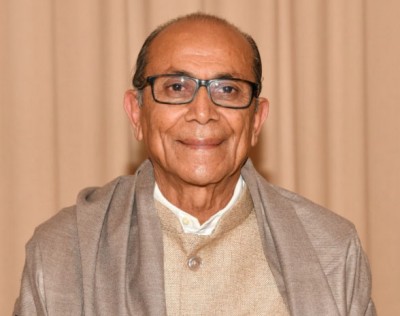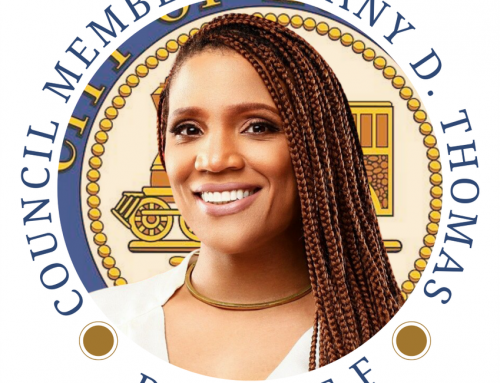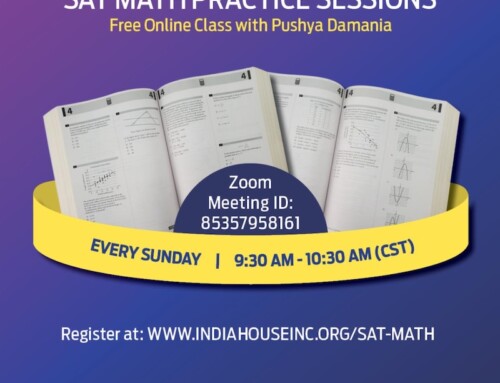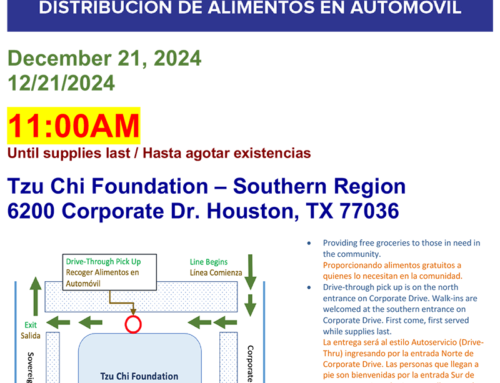 Madan Luthra of Houston was a child refugee when he first learned about selfless service to others.
Madan Luthra of Houston was a child refugee when he first learned about selfless service to others.
Born five days after the 1947 partition of the Indian subcontinent, in what is now Jodhpur, Pakistan, Luthra lived in government camps in India.
“In early childhood, [I saw] that when you don’t have anything, the only thing you have is humanity,” Luthra said recently. “The majority of people helped selflessly, and I think [that] must have had a good impact on me.”
It certainly seems so.
Texas First Lady Cecilia Abbott bestowed a Governor’s 2021 Volunteer of the Year Award upon Luthra for “volunteering over 30 hours a week to support families in distress through Sewa International’s Family Services program” in Houston in the wake of the COVID-19 pandemic.
The program has provided food and other basics to thousands of people in southwest Houston along the Bellaire Boulevard corridor served by the Southwest Management District and International Management District, which consider Sewa a priceless community asset.
Sewa is a Hindu faith-based, humanitarian, nonprofit service organization specializing in disaster relief and rehabilitation with chapters across the globe.
Luthra has devoted many days to Sewa programs after retiring from medical research and teaching at the University of Texas MD Anderson Cancer Center.
According to Luthra, case management with Family Services entails acting as an extended family member.
“[I would] do whatever needed to be done, [just] as a family member would do when they’re present,” Luthra said.
He noted that “sewa” is a Sanskrit word meaning “selfless service,” and said Sewa International lives up to its name.
Faith, too, has been a guiding force for Luthra, who is also the recipient of the 2020 Akhil Chopra Unsung Heroes Award from the Hindus of Greater Houston, which is dedicated to bringing the Hindu community together.
Luthra pointed to scripture and the teachings of gurus that say conscientious karma—which Luthra described as planning one’s life and doing one’s actions in a conscientious way—is central to a life lived right.
“With our scripture, we feel like a conscientious karma is the only basis that we are here for in this universe,” Luthra said. “If we do [those actions] selflessly and with the praise of God, or the Creator, it makes sense.”
Luthra described conscientious karma as “automatic” in the same way that he described volunteerism, speaking of both as integral to his life.
Kavita Tewary, executive director of Sewa International Houston, said Luthra has been very hands-on in his time with the organization, especially in sensitive cases that require a compassionate touch. Tewary cited a recent example of a student from India who was studying at UT Dallas and died in a car accident.
“[The student] had no family here [in Houston] to take the responsibility of everything that happens when you die,” Tewary said. “[Luthra] took care single-handedly of everything, including liaising with the family back home [in India] during time differences. He’s the kind of person… who you can call in the middle of the night.”
Luthra is also heavily involved in the Disaster Recovery project of Sewa, an arm of which provides rescue, relief, and recovery after disasters such as Hurricane Harvey. During the initial stages of the pandemic, Tewary said Sewa provided first responders with hand sanitizer, personal protective equipment and other essentials.
With a boost from federal grants and a $5,000 grant from the Southwest Management District, Sewa was able to scale up distribution of food and masks.
Alice Lee, executive director of the Southwest Management District, praised Sewa and Luthra, saying it was great to see a local group’s volunteer getting recognition from Gov. Greg Abbot and his wife.
As the pandemic and its effects evolved, Luthra himself delivered essentials to quarantined families—something that was no easy task, according to Lee.
“When we were doing the food distribution, these food boxes weigh like 30 pounds,” Lee said. “It requires a lot of human sweat and muscle, and I think [Sewa] touted [Luthra] as one of their oldest members.”
But knowing Luthra’s background, he’s never been one to shy away from hard work. When Luthra was pursuing a PhD in biochemistry at Leeds University, he spent frigid British mornings (at 3 a.m., to be exact) delivering mail by bicycle for extra cash. Luthra, for his part, cited warmer weather as a main reason for putting down roots in Missouri City, along with the cultural diversity of the Houston area.
As a young child in India, a student in Leeds, or a volunteer in Houston, Luthra said that when exposed to different faiths, languages, cultures, habits, or food, one thing was very common: We are all part of one human race.
“[In Leeds or in Sewa], there is this good feeling that we are one big family in the whole universe, which in Sanskrit we call ‘Vasudhaiva Kutumbakam’,” Luthra said. “When you look at somebody eye to eye, that’s all that matters. We should help just like we [would with] a family member.”
— By Rachel Carlton






Leave A Comment